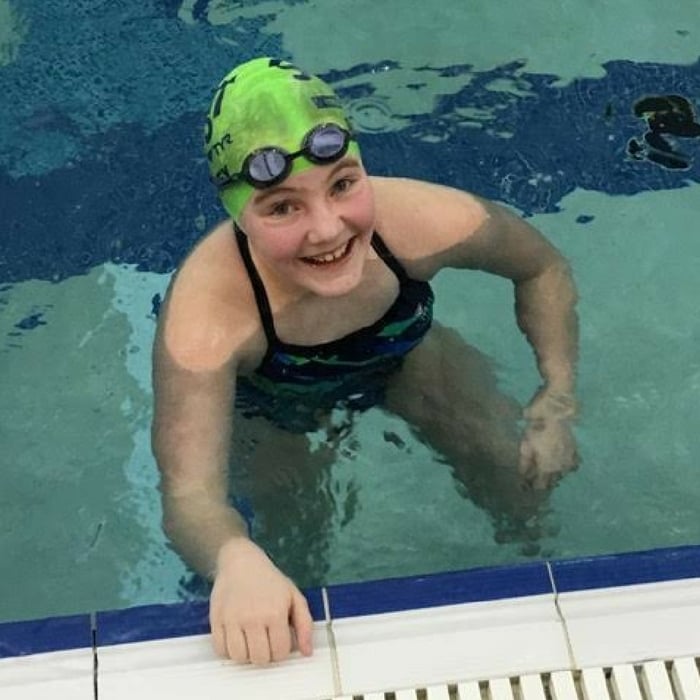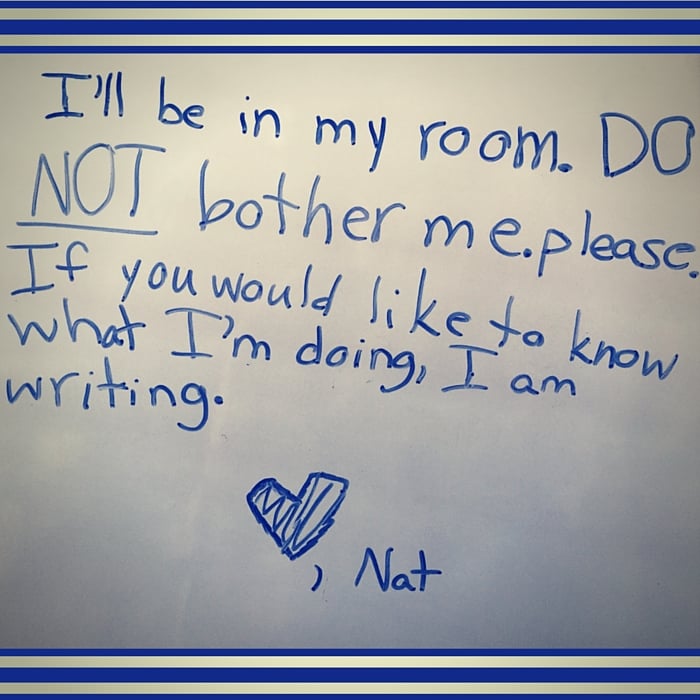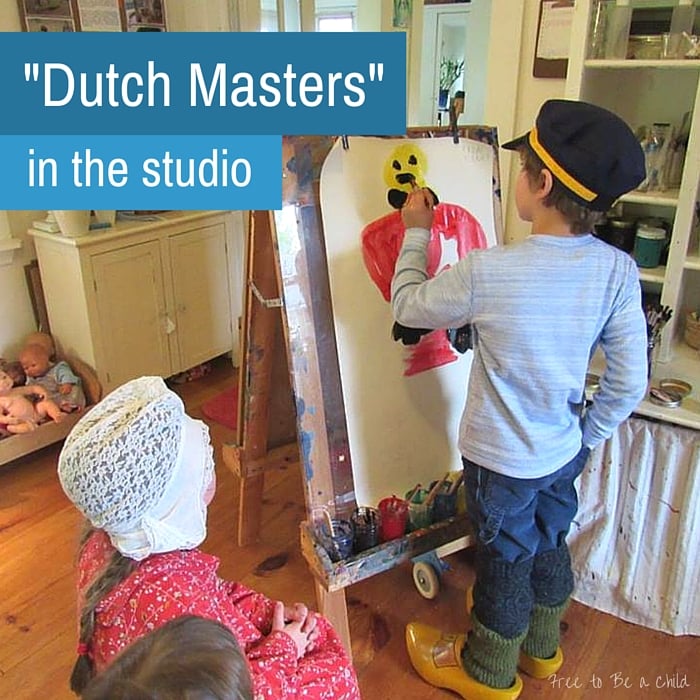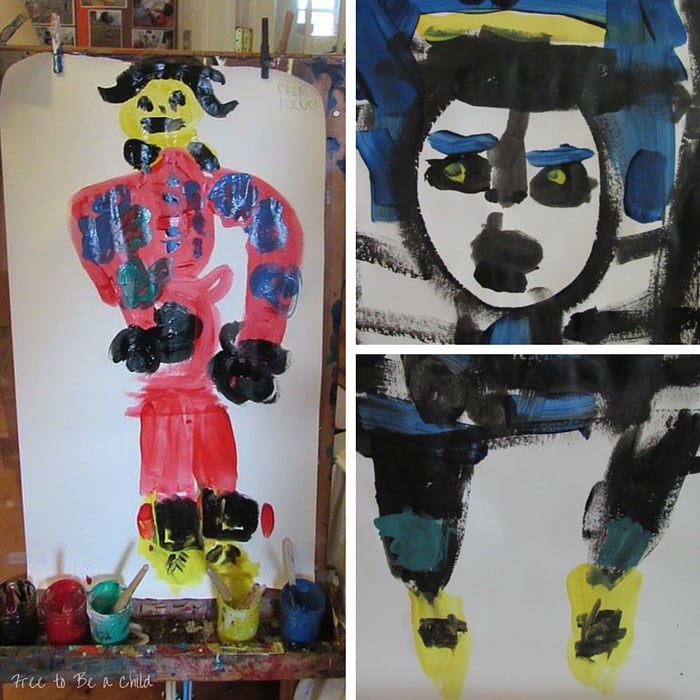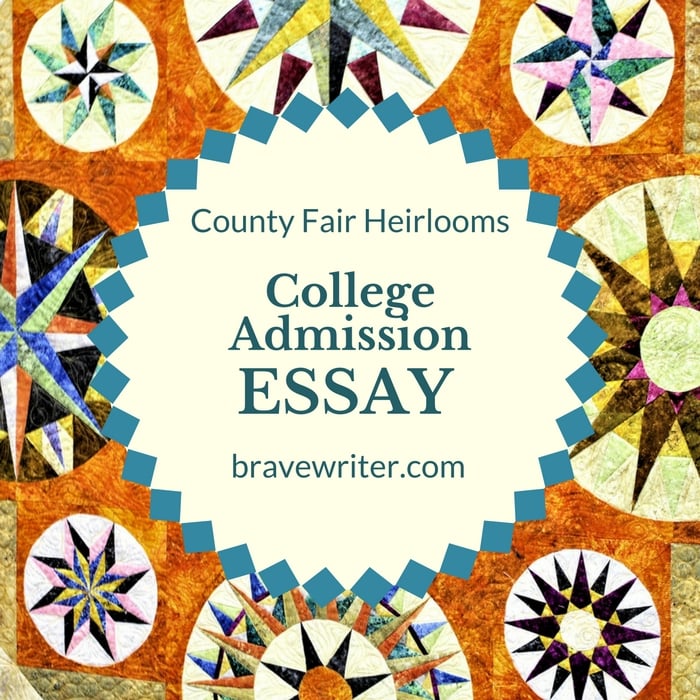
Brave Writer’s friend and former instructor, Nancy Graham, writes:
I’ve been teaching Brave Writer’s College Admission Essay class for three years now and I love watching the essays come into focus. Students often start with no ideas or a vague sense of the story they want to tell about themselves, and they leave with a piece that traces a time in their life when they were transformed in some way. What seems at first like a purely functional piece of prose—“Let me into your college!”—becomes a moving document of insight and self-reflection. Whether the writer has undertaken her education at home or in a school, this essay is an opportunity to reflect on her life so far—what she values and what she has learned.
Below is Cassie’s meditation on how a county fair became a family heirloom. Cassie took our Fall 2014 College Admissions Essay class.
County Fair Heirlooms
By Cassie W.
Knox College, class of 2019
Stepping into the cinder block clubhouse near the first gate of the Prince William County Fair, I’m greeted with both a wave of nostalgia and friendly hellos. The old ladies—dressed in sweatpants and gingham aprons—step out from behind plastic folding tables heavy with aluminum warming dishes full of mashed potatoes, gravy, chicken, and lima beans. They smile at me and squeeze my arm and tell me how much I’ve grown up since last year, and I smile and say that it’s good to see them and I’m glad to be back. It’s been like this for as long as I can remember.
This year, my green volunteer t-shirt is sticking to my back, and my bangs are plastered to my forehead. I’ve been working in the Home Arts building for the past five hours—a tin-roofed barn where the exhibitions are held. I fill out paperwork, help with judging, and hang the exhibits—amateur photos of babies and animals, now decorated with blue, red, and white ribbons that flutter in the breeze of electric fans. Although it’s hard, hot, and tedious, I take more pride in my job than in any other work.
I grab a paper plate from the stack on the table and pile it with the creamy mashed potatoes, dousing the miniature potato mountain with gravy, and dipping the spoon into the mess of soft lima beans and melted butter for an extra helping.
Sure, I love the cotton candy, soft-serve ice cream and funnel cake of the carnival as much as anyone, but it’s the homemade food cooked up by the remaining members of the Ladies’ Auxiliary Fair Club that I love best. It’s the same sort of food my grandmother would make for me as a kid, which makes sense, seeing as she used to cook in the clubhouse kitchens. She worked hard for the fair for most of her life, like my grandfather, who helped found the fair over sixty years ago when he came back from World War II. I never knew my grandfather, but I have childhood memories of my grandma walking me around the fairground, smiling and waving at me while I rode the merry-go-round or the bumper cars, scolding me when I got lost in the crowd.
Grandma died the spring I turned fourteen, but for this week in August, when I spend every day at the fair, her legacy—and that of my grandfather—is palpable. The fair has always been deeply woven into the history of my mother’s side of the family, and we joke that the clubhouse is like more like Thanksgiving in August.
Every day, I walk the midway. I’m usually alone. There’s no one to scold me when I get lost in the crowd, so I let myself get lost: I ride the rides, the bare backs of my legs sticking to the vinyl seats. I scratch the oily heads of sheep and let cows lick my hands, pose proudly for pictures by my award-winning cookies or decorated potatoes, eat ice cream, and watch acrobats perform in the little circus ring behind the chicken barn. I strut at the fair, and my personality shifts: I am proud of every aspect of the place. A deep pride in my family, yes, but also a personal pride. I feel like the fair is mine, and I always have. It is something that has been handed down to me, like a gift.
I don’t have many heirlooms from my my maternal grandparents—my grandmother’s hand-stitched quilt, a set of china plates. I will treasure these things. But I also have the fair, the community, and the memories of humid summers, oily sunscreen, and my grandmother’s wrinkled hands that come with it.


